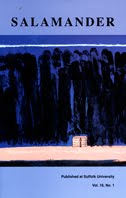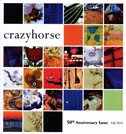Irish Pages – 2010
“Some time ago, we decided to devote most of one issue to Irish Pages/Duilli Eireann to contemporary writing in Irish, so as to illustrate the still-thriving literary life of the island’s old language. We appreciate that much of the this issue will be inaccessible to many of our readers, but hope that those without Gaelic will nonetheless glean some sense of the rich Irish-language dimension of contemporary Irish literature,” write the editors. And we do! Continue reading “Irish Pages – 2010”


